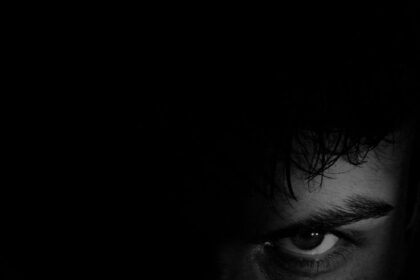Death is one of the deepest and most distressing mysteries of existence. It’s often described as the end of consciousness, but there’s no one who actually knows what happens after. Fear of death seems to be tied to the survival instinct, our biological drive to preserve life.
We find comfort in the known, and death represents the ultimate opposite of what we know. Maybe it’s a void that is devoid of light, sound, and sensation, just like the abyss of darkness. Those who don’t fear death, whether they are brave or foolish; it’s also a sort of mystery. Perhaps they have found peace in accepting the inevitable, or maybe they simply disregard the gravity of existence.
‘After us, there will be others, perhaps more creative and innovative’
There are many theories and stories about death, and they often end in regret, because in real life, all individuals constantly strive for more and more time, more experiences, more meaning. And when there’s death, it feels like a theft of all we hold. So how can we be certain of anything about death, as no one has returned to explain it?
It might be the most beautiful thing or place, or it could be the complete opposite. The fear of darkness and death is closely linked to our fear of the unknown. In darkness, we can imagine countless threats; the same is true for death, as the mind conjures up similar fears. The fear of not knowing what comes next. While we fear death in life, will we also fear eternal life in death? Some people fear life itself, seeing death as a kind of reward. They think death is an eventual escape.
Perhaps it is, since no one has returned to tell us otherwise. Yet, as long as we are alive, life must certainly be more precious than death. People often associate death with wailing and sorrow, reflecting the grief of those left behind. But what about the person who dies? If consciousness persists after death, will the deceased feel regret for leaving life behind, or will they find peace in the release from suffering? Have they ever experienced suffering? Maybe, death is the only cure for all suffering. One of the scariest things about death is the possibility of existing an afterlife for eternity.
BITTERSWEET DESIGN
Perhaps no one wants to die, yet those who think beyond the ordinary often feel detached from life. According to some beliefs, we have another life after death, called the afterlife. The question is, how will we live for eternity there? On Earth, life is short. We are only here for a fleeting moment, replacing those who came before us –people just like us, who once thought the same thoughts we have now. People come and go, but ideas remain unchanged, continuing through time, both before and after us.
All of us will eventually become ancestors to future generations, and they likely won’t know who we were unless we were rulers, or made significant contributions to art, philosophy, and science, or left behind wealth for our bloodline. But that’s perfectly fine, as we hardly know much about our own ancestors either, if at all. Many people know where they came from, but how many truly know how creative or remarkable their great-grandfather was?
UNCERTAINTY OF MORTALITY
Death is unpredictable, and that unpredictability is one of its scariest aspects. We can die at any moment, and we cannot escape it. It appears to be inevitable that sooner or later, every living being ultimately must face death. After us, there will be others, perhaps more creative and innovative. However, living in fear of death or wishing for it to come sooner isn’t the answer.
We must embrace life, even if we see it as miserable; what feels burdensome to one might be a dream life for another. Our legacy doesn’t depend solely on being remembered; it depends on our own self-awareness. Death is an undeniable truth, whether we like it or not. Yet, for those who hold strong beliefs, one thing never dies: ‘hope’. As Martin Luther King Jr. said, “We must accept finite disappointment, but never lose hope.”















